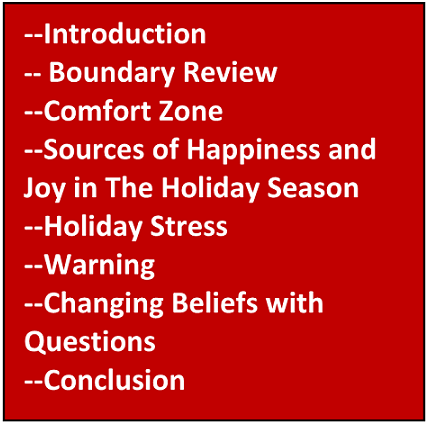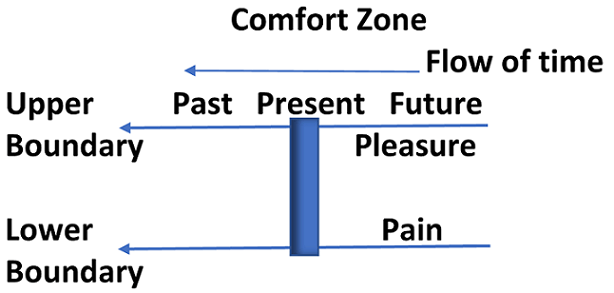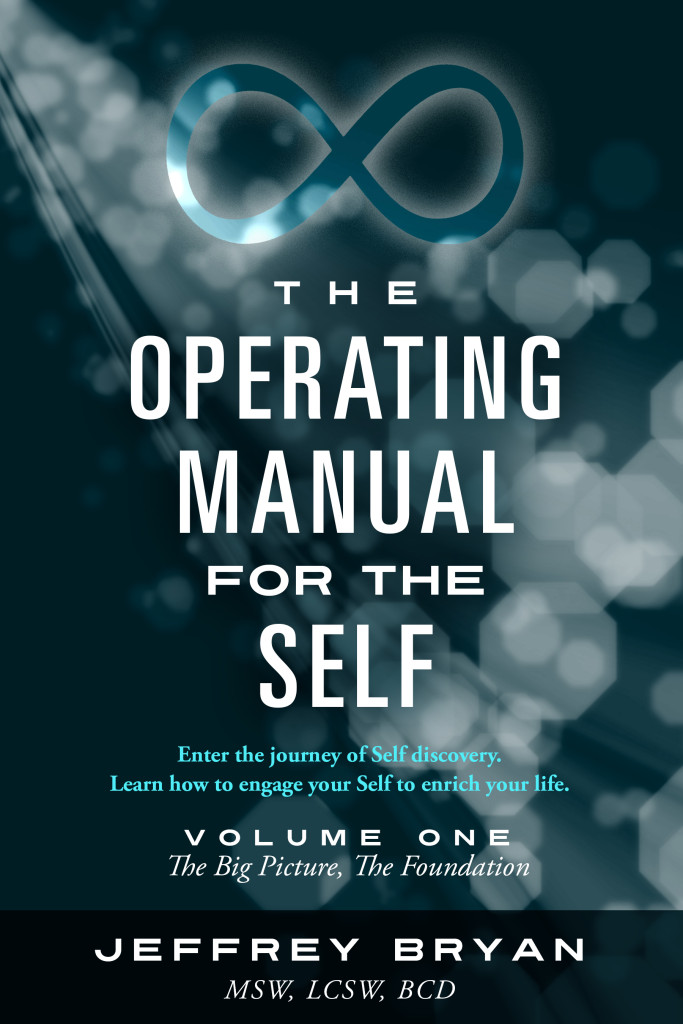Boundaries, the Comfort Zone, and Holiday Happiness and Joy Pdf
INTRODUCTION
The purpose of this newsletter is to increase the amount of happiness and joy we experience during the holiday season. Toward this goal we briefly review boundaries, explore the comfort zone with its upper and lower boundaries, identify sources of holiday happiness and joy, and mention holiday stressors. Let’s see how this all fits together.
BOUNDARY REVIEW
A boundary is something that separates. When we say “No,” (our boundary “setter”) we limit what can cross our boundaries by closing them to varying degrees. Also, “No” can protect something that we value. By saying “Yes,” we open our boundary to allow something in. We need flexible boundaries that we can adjust to a situation, boundaries we close and open as appropriate.
During the holiday season, “no” protects our resources—our time and our energy, when so much is expected of us, expectations that others have of us and expectations that we have of ourselves. “Yes” opens us up to the happiness and joy that is so plentiful during the holiday season.
Reference: Newsletter, October 2017—Boundaries
Point of Empowerment: Too many demands (expectations) on your time result in stress and anxiety, and resentment and anger.
Practice: Spend your time in pleasure, happiness, and joy, not in stress and anxiety.
COMFORT ZONE
Human beings seek comfort—a relaxed/pleasurable feeling with the absence of discomfort/pain. We have a comfort zone that we can picture as a space bounded (having boundaries) by two parallel lines running from the future to the present to the past.
- The lower boundary of our comfort zone is our threshold of pain. Below the lower boundary is pain that we will take immediate action to alleviate; actions that will return us to our comfort zone.
- The upper boundary of our comfort zone is the limit that we place on the “good things in life”—pleasure, success, happiness, joy, and love, for example. When we find ourselves above the upper boundary we feel anxious and will sabotage what is good to bring us down into our comfort zone. Examples of sabotage are: changing your focus of attention from pleasure to something negative/painful, becoming self-critical, injuring yourself, picking a fight with someone, doing something “against my better judgement” that is guaranteed to go badly, or imposing “holiday stress” upon myself, (self-imposed, unnecessary, stress).
- The upper level of the comfort zone is composed of beliefs that generate fear. Everyone holds these beliefs to some degree. We may be surprised at how strongly we hold them. Even if we hold them to a lesser degree, they still have impact. Some of these beliefs are:
- Happiness and joy won’t last so I might as well end them now. I fear losing these good feelings.
- Since good feelings will end I might as well sabotage them myself. At least I am in control. I fear being out of control.
- It’s wrong to be happy when so many people in the world are unhappy. I feel so guilty. I fear my guilt.
- Everyone around me is negative and unhappy much of the time. If I am happy I will be excluded from their company. I fear being rejected and alone.
- My family is negative and unhappy. If I am positive and happy I will no longer belong to this family. I fear not belonging and being lonely.
- I don’t deserve this much happiness and joy. Happiness and joy trigger feeling unworthy. I fear feeling unworthy.
These are some of the main beliefs that cause us to sabotage our pleasure out of fear. All these beliefs are very active during the holiday season when we are encouraged to celebrate and to feel good.
SOURCES OF HAPPINESS AND JOY IN THE HOLIDAY SEASON
Since there is such an emphasis on feeling good during the holiday season, there are so many opportunities to experience the good that life has to offer. For example:
- Spending time with loved ones

- Giving and receiving gifts with gratitude
- Sitting around the fire
- Enjoying a holiday meal
- Absorbing and experiencing the holiday spirit
- Experiencing the transcendence of the holiday spirit
- Laughing together
(Reference: December 2016 Newsletter.)
Consciously choose to enjoy: the spirit of giving, celebration, appreciation/gratitude, spiritual/religious experiences, beauty, and fun.
HOLIDAY STRESS
Holiday stress is generated by expectations that cause us unhappiness and pain, expectations that we need to reject.
- “No,” I will not spend time with people I dislike.
- “No,” I will not go shopping during the most crowded times of the day.
- “No,” I will not go into debt to buy gifts.
- “No,” I will not travel long distances to destinations I detest.
Practice: Since we value feeling good, especially during the holiday season, we set boundaries with the appropriate use of “No.” Just say “No.”
WARNING
Point of Empowerment: The happiness and joy of the holiday season can bring you past the upper limit of your comfort zone.
Practice: Become more aware of feeling good. Notice if the good feeling triggers anxiety or discomfort. Notice what you do in response to the anxiety. Do you sabotage feeling good in some way? Write down the answers to this question.
Point of Empowerment: To feel more pleasure, happiness, and joy we need to raise the upper limit of our comfort zone by challenging our limiting beliefs.
CHANGING BELIEFS WITH QUESTIONS
We have used questions to challenge and change beliefs. (The newsletter on resistance—March 2017, has a long list of questions to challenge beliefs.) Here are some beliefs, questions, and new beliefs around pleasure and joy during the holiday season.
| If I don’t visit friends I dislike I will lose them. I don’t want to lose them. | Why do I value the friendship of people I dislike? | Ok, this is an opportunity to end friendships with people I dislike. |
| It is worth going into debt to buy holiday gifts, even though this debt feels awful. | Why do I think gifts that cost me money are so valuable? | Ok, I can find gifts to give that are valuable and do not put me into debt. |
| I don’t plan a good time to go shopping and it becomes stressful. | Is lacking the self-discipline to plan my shopping a good strategy? | No, it is not. I am now more self-disciplined, plan, and therefore use my time wisely. |
These examples show us how to implement changes in our beliefs that will bring us increased pleasure, happiness and joy during the holiday season. And, of course these strategies are helpful at any time of the year when we identify beliefs that no longer serve us.
- Point of Empowerment: To make your new beliefs an integral part of your Self, of your belief system, you must put the new beliefs into action.
- Practice: Put your new beliefs into action now to create more pleasure during the holiday season.
- Point of Empowerment: As you try to act on your new beliefs, you may run into resistance, something that stops you.
- Practice: Read the newsletters on resistance for instructions on identifying and resolving resistance. (Newsletters—February and March 2017)
Conclusion
The happiness and joy we created for ourselves during the holiday season can continue to increase throughout the year. The concept of the comfort zone has many implications that we will explore in the January 2018 newsletter. Have a happy and joyous holiday season.

Knowing your Self enables you to push beyond the limits of your comfort zone and to experience yourself in ways you never thought possible.
